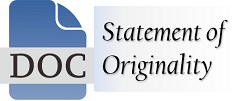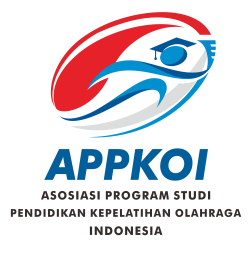Philosophy of Education and Character Education Management: Building the Morality of the Young Generation Through Sport
DOI:
https://doi.org/10.31599/qkxybx16Keywords:
Philosophy of education, Character education management, Morality, Industrial Age 4.0, Character educationAbstract
The development of technology and digitalization in the Industrial Age 4.0 brings new challenges in character education, especially in shaping the morality of the younger generation who are exposed to the rapid flow of information and social change. This article aims to analyze the role of philosophy of education as a conceptual foundation in character education management to form a young generation with morality, integrity, and responsibility. Through an interdisciplinary approach that incorporates values from various schools of educational philosophy such as humanism, existentialism and pragmatism, this article highlights how these values can be applied in school policies, curriculum and learning methods. This research uses a qualitative method with literature analysis and case studies on several schools that implement philosophy-based character education. The results show that philosophy-based character education management is able to shape students with deeper moral understanding and stronger ethical awareness in the use of technology. Challenges faced include teachers' limited understanding of educational philosophy and the lack of structured policy support. Nevertheless, philosophy-based character education proved to be more effective in building long-term morality than conventional approaches that focus on reward and punishment.
Downloads
References
Arifin, Z. (2009). Manajemen Pendidikan: Aplikasi dalam Pendidikan Karakter. Jakarta: Bumi Aksara
Arthur, J. (2021). The moral and intellectual virtues of character education. Journal of Philosophy of Education, 55(1), 10-24
Banks, J. A. (2017). Citizenship education and global migration. Intercultural Education, 28(5), 381-399
Basrowi. (2009). Pendidikan Karakter Berbasis Kearifan Lokal. Malang: UIN Maliki Press
Brighouse, H., & Swift, A. (2019). Character education, liberalism, and the demands of citizenship. Educational Theory, 69(1), 53-66
Crittenden, V. L., & Crittenden, W. F. (2015). Digital and social media marketing in business education. Journal of Marketing Education, 37(3), 141-145
Gagnon, J. D., & Mattingly, M. (2016). Building character through philosophy: A new model for character education. Educational Philosophy and Theory, 48(11), 1151-1163
Hidayat, R. (2019). Peran Guru dalam Pendidikan Karakter di Era Industri 4.0. Jurnal Pendidikan dan Kebudayaan, 25(3), 104-115
Hoskins, B., & Sallah, M. (2015). Developing intercultural and civic competencies through education. European Journal of Education, 50(3), 259-279
Jones, S., & Mitchell, M. (2016). Character education and the digital world: Preparing youth for ethical challenges. Journal of Adolescence, 51, 26-30
Koesoema, D. A. (2007). Pendidikan Karakter: Strategi Mendidik Anak di Zaman Global. Jakarta: Grasindo.
Kristjánsson, K. (2015). Aristotelian character education in a digital age. Educational Theory, 65(2), 165-182.
Kuntowijoyo. (1991). Paradigma Islam: Interpretasi untuk Aksi. Bandung: Mizan
Lickona, T. (1991). Educating for Character: How Our Schools Can Teach Respect and Responsibility. New York: Bantam Books
Livingstone, S., & Third, A. (2017). Children and young people’s rights in the digital age: An emerging agenda. New Media & Society, 19(5), 657-670
Nashori, H. F. (2016). Filsafat Pendidikan untuk Pendidikan Karakter. Bandung: Remaja Rosdakarya
Nisbett, N., & Gumber, A. (2018). Mobile phones and digital identities. Development in Practice, 28(2), 172-185
Noddings, N. (2018). Caring in Education. In The Ethics of Care and Education. Routledge
Nucci, L. P., & Narvaez, D. (2020). Character education in an age of moral pluralism. Journal of Moral Education, 49(3), 285-297
Peterson, A., & Sanger, M. (2017). Developing moral agency through existentialist and humanistic approaches to character education. Ethics and Education, 12(3), 365-380
Rahardjo, M. (2015). Filosofi Pendidikan untuk Karakter Bangsa. Yogyakarta: Andi
Schwab, K. (2016). The Fourth Industrial Revolution. World Economic Forum
Shapiro, H. (2021). Character education and digital citizenship in the age of social media. Journal of Moral Education, 50(3), 307-320
Sunarto, W. (2017). Pengaruh Teknologi terhadap Pendidikan Karakter. Jurnal Sosiologi Pendidikan, 12(4), 221-230
Suparlan, P. (2018). Tantangan Pendidikan Karakter di Era Globalisasi. Jurnal Pendidikan dan Kebudayaan, 23(1), 75-85
Suyanto, S. (2011). Pendidikan Karakter di Sekolah: Implementasi dan Tantangannya. Jurnal Ilmu Pendidikan, 18(1), 55-64
Syarif, A. (2018). Pendidikan Karakter di Era Digital. Jurnal Pendidikan Karakter, 9(2), 111-121
Tilaar, H. A. R. (2002). Pendidikan, Kebudayaan, dan Masyarakat Madani Indonesia: Strategi Reformasi Pendidikan Nasional. Bandung: Remaja Rosdakarya
Usman, N. (2010). Manajemen Pendidikan Berbasis Karakter. Jakarta: Rajawali Pers
Wahyudi, A. (2016). Pendidikan Moral dan Tantangannya di Era Digital. Jurnal Pendidikan Karakter, 11(3), 67-78
Wening, D. (2014). Filsafat Pendidikan dalam Pembentukan Karakter Siswa. Jurnal Filsafat Pendidikan, 8(2), 133-142
Wibowo, A. (2012). Manajemen Pendidikan Karakter. Yogyakarta: Pustaka Pelajar
Yusuf, M. (2020). Pendidikan Karakter di Sekolah: Realitas dan Tantangan. Jurnal Pendidikan Islam, 6(2), 23-34
Zakiyah, D. (2018). Pendidikan Karakter: Antara Teori dan Praktik. Jurnal Pendidikan Islam, 7(1), 99-110
Zubaedi. (2011). Pendidikan Karakter: Konsep dan Aplikasinya dalam Lembaga Pendidikan. Jakarta: Prenada Media
Downloads
Published
Issue
Section
License
Copyright (c) 2025 Rahayu Susanti, Masduki Ahmad, Suryadi

This work is licensed under a Creative Commons Attribution 4.0 International License.






.png)







